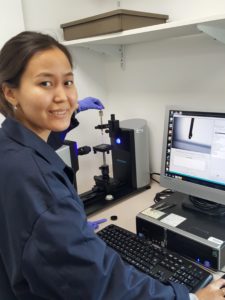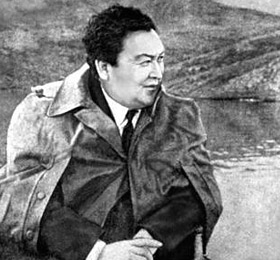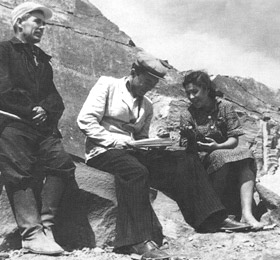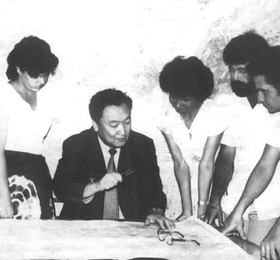Laura Kaliyeva
Laura is 23, she is from Aktobe. Even during the Bachelor’ studies, she was engaged in scientific research. The future chemist won our competition for research internship in the UK and spent it from June to September of 2017 at the Open University.
 When was your first interest in chemistry born? When did you decide that you would be a chemist?
When was your first interest in chemistry born? When did you decide that you would be a chemist?
I can’t say exactly when, but maybe it began at school. For me, much more of the flip was the emergence of interest in scientific researches. In the summer preceded my final year, my professor invited me to work on the some project. By that time I had already decided that after graduation I would go to work in the oil and gas sector, that the research is not mine, it’s boring and only for some geniuses. However the professor proved that research is not difficult and even entertaining to some extent, and most importantly, he inspired me to such an extent that now I don’t see myself in any other field except science.
How difficult was a contest for you? And why?
On the one hand a program I applied for was just launched for the first time, and the selection process was not carried out in the usual way — without an interview and business games. The documents sent have been considered by the Fund and the in the Open University. On the other hand, it is not easy for the one to impress others only by Application, without the possibility to demonstrate himself personally.
What were you doing at the internship in Milton Keynes?
I did my research at the Smart Materials Group, at the Department of Engineering and Innovation of the Open University. The project which I worked on was associated with the use of graphene oxide in perovskite solar cells. It was about efficiency. Perovskites are very popular research topic in the field of solar energy. My task was to identify the pattern of influence of nitrogen impurities on the electronic properties of graphene oxide. Towards the end of the internship I made a presentation on the outcomes for all the employees of the laboratory. And in the end of the internship my supervisor – Dr Satheesh Krishnamurthy invited me to join a group of three students at a seminar at University College London, where I was able to learn about the latest innovations and solar energy projects.
What have you achieved during the internship?
The results of the experiments could not be considered as definitely positive. We observed a clear influence of nitrogen on the properties of graphene oxide, but we did not reveal a clear improvement or deterioration of the material properties. In order to publish the results of the project, it is necessary to obtain a certain pattern. The influence of our graphene oxide on the efficiency of the batteries should be checked on special solar simulators after the whole battery will be fully assembled, but this is a topic for a separate scientific project.
What’s next?
Now I communicate with American professors, under whose supervision I would like to work. I plan to get a PhD in the States, I want to become an expert in this field. I would like to continue working with graphene, Rice University and Georgia Tech actively carry out researches of the material at the moment. This internship helped me a lot, it is not just a line in my CV; I got an experience and gained skills of work with equipment, which I had not before. The internship is very valuable and may be the decisive factor for accepting me as a PhD student. Moreover the internship helped me to understand my own interests and goals and to become more confident.
15.12.17, Stories
Seen by: 90




